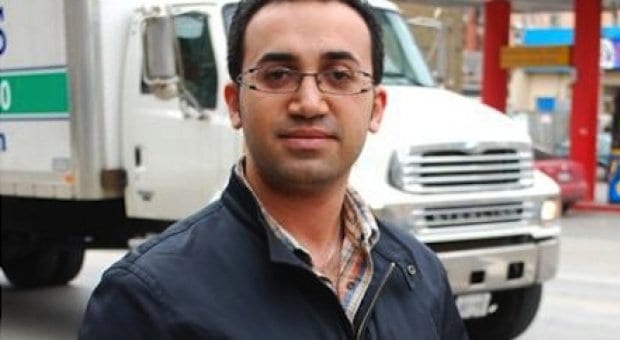One refugee organization says a strike in the foreign service is hurting asylum claims abroad, turning an already-long processing period into an indeterminate waiting game.
Arsham Parsi, executive director of the Iranian Railroad for Queer Refugees Inc, works to get queer Iranians out of the country and into Turkey, where they can file asylum for countries like Canada. They’ve dealt with about 750 cases since inception and have resettled nearly half that number already.
But Parsi says there are currently 70 Iranians working with his group who are waiting for their applications to be processed by the Canadian embassy. They have all been processed by the United Nations High Commission on Refugees and are just waiting for Ottawa’s green light. Parsi says that the strike is slowing things down.
“Some of them are already waiting over 12 months, and many of them are in a limbo situation with no update from embassy,” Parsi tells Xtra. He says his group has not been able to reach the Ankara embassy refugee staff since May — and they have reached out to Citizenship and Immigration Canada without avail. Parsi says the refugees-in-waiting are paying a financial and emotion toll as they bide their time in Turkey — a country not well known for its gay-rights record.
A spokesperson for Citizenship and Immigration told Xtra, without commenting on specific embassies, “processing of urgent humanitarian visa applications is essential work in all visa offices.”
The Railroad — named for both the American Underground Railroad and the trains that take the refugees from Tehran to Ankara — has worked closely with the Canadian government. The group met with then-citizenship and immigration minister Jason Kenney as recently as January, when he announced increased quotas for queer refugees applying from Turkey. The Canadian government, Parsi says, has also hastened the application process for queer refugees. Those that Parsi deals with usually make it to Canada within a year of leaving Iran, he says.
The government spokesperson confirmed that “all visa offices remain open and continue to provide service to clients. Every visa office maintains a core number of staff that have been deemed ‘essential.'”
Tim Edwards, president of the Professional Association of Foreign Service Officers — the union that represents the striking workers — says that since the strike began on April 2, Foreign Service staffers have been working to minimize its impact. They have been operating a rotating boycott that shouldn’t unduly affect any one area.
“PAFSO has done everything within its power to ensure that service withdrawals at visa processing centres abroad do not impact processing of refugees in perilous conditions or other urgent humanitarian cases. We have advised our members to proceed with these visits uninterrupted,” Edwards wrote in an email. But it’s not entirely up to the union, he points out.
“Ultimately, however, it is up to CIC management to determine priorities and assign tasks. PAFSO is not in a position to provide specific details or guarantees on how refugee or other humanitarian cases are handled,” he says, adding that Ottawa has moved staff around to ensure that things like student visas are processed quickly.
The government spokesperson did not comment on the situation in Ankara but did say that “over 1,000 locally engaged staff continue to work in the visas offices overseas, and CIC has hired additional staff on a temporary basis to help process visas both overseas and in Canada.”


 Why you can trust Xtra
Why you can trust Xtra


